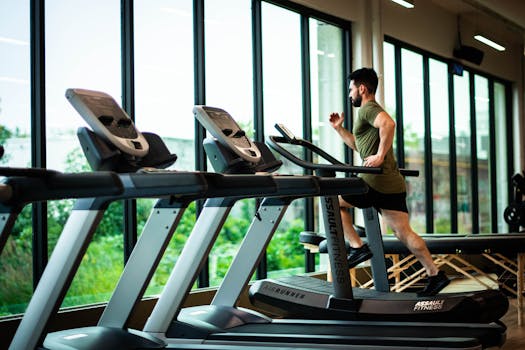
Table of Contents
- Smart Home Technology
- Wearable Health Technology
- Personal Assistants and AI
- Sustainable Technologies
- Virtual Reality and Augmented Reality
Smart Home Technology


Smart thermostats, like the Nest Learning Thermostat, learn your habits and adjust the temperature accordingly, optimizing energy use and saving money on utility bills. Smart lighting systems can be programmed to turn on and off at specific times or controlled via voice commands, creating a comfortable atmosphere without the need for manual adjustments.
Moreover, home security systems equipped with smart cameras and motion sensors provide peace of mind, allowing homeowners to monitor their property in real-time through mobile apps. This integration of technology not only improves lifestyle convenience but also contributes to energy efficiency and enhanced security.
Wearable Health Technology

For instance, devices like the Apple Watch and Fitbit encourage users to set fitness goals, track their progress, and maintain a healthy lifestyle. By providing real-time feedback, these wearables motivate users to stay active and make healthier choices. The integration of health monitoring features also allows users to detect potential health issues early, promoting preventative care.
Additionally, more advanced wearables are now incorporating features such as ECG monitoring and blood oxygen level tracking, making it easier for users to manage their health proactively. This shift towards proactive health management is a significant benefit of wearable technology, leading to a more health-conscious society.
Personal Assistants and AI
The rise of artificial intelligence has brought about significant advancements in personal assistants, such as Amazon’s Alexa, Google Assistant, and Apple’s Siri. These voice-activated assistants can perform a variety of tasks, from setting reminders to controlling smart home devices, all through simple voice commands.
By streamlining daily tasks, personal assistants free up time for individuals to focus on more important aspects of their lives. For example, users can easily manage their schedules, play music, or check the weather without the need to manually interact with their devices. This convenience leads to improved productivity and a more organized lifestyle.
Moreover, AI is transforming how we interact with technology, making it more intuitive and user-friendly. As personal assistants continue to evolve, we can expect even more capabilities that enhance our daily routines and improve overall lifestyle quality.
Sustainable Technologies

Solar panels allow homeowners to harness renewable energy, significantly reducing electricity bills and reliance on fossil fuels. Energy-efficient appliances, on the other hand, consume less power and water, contributing to lower utility costs and a smaller environmental impact.
Electric vehicles (EVs) are also gaining traction, offering a cleaner alternative to traditional gas-powered cars. With advancements in battery technology, EVs now provide longer ranges and faster charging times, making them a viable option for everyday transportation. By embracing sustainable technologies, individuals can lead a lifestyle that aligns with eco-friendly values while enjoying the benefits of modern innovation.
Virtual Reality and Augmented Reality

In the realm of fitness, apps utilizing VR technology allow users to engage in immersive workout experiences, making exercise more enjoyable and motivating. Fitness games can transport users to different worlds while they work out, turning a mundane routine into an exciting adventure.
Moreover, educational applications of AR can enhance learning experiences by providing interactive elements that capture users’ attention and improve retention. By integrating these technologies into our daily lives, we can enrich our experiences, making them more engaging and impactful.




